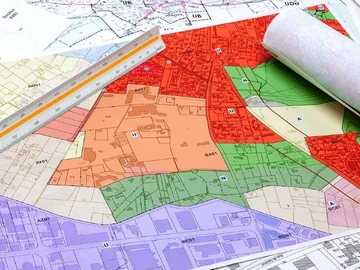Cession is a term frequently encountered in Zimbabwe's property market, especially when dealing with local authorities, housing cooperatives, and unfinished developments. But what does it really mean, and how does it affect buyers and sellers?
This article breaks down what cession is, how it works in Zimbabwe, its pros and cons, and what you should watch out for when considering buying a property through cession.
What is Cession?
In real estate, cession refers to the transfer of rights or interest in a property without transferring ownership through a title deed. This is common in situations where land is not yet titled, or is owned by a local authority or cooperative.
Instead of a title deed, the buyer receives a cession agreement or an offer letter, often issued by:
- Local councils (e.g., City of Harare, Ruwa Local Board)
- Housing cooperatives
- Private land developers
This document “cedes” the seller’s rights to the buyer, giving them legal occupancy or development rights but not full ownership.
How Cession Works in Zimbabwe
Here’s a simplified breakdown of how a cession transaction typically unfolds:
- Seller has a right to a stand or property (e.g., through an offer letter or agreement of sale).
- Buyer and seller sign a cession agreement, transferring those rights.
- Relevant authority (e.g., city council or cooperative) must approve and register the cession.
- Buyer gets confirmation and takes possession of the property.
Important: The buyer does not receive a title deed only the right to occupy and use the land or property.
Local Statistics: How Common is Cession?
- According to 2023 data from Harare City Council, over 40% of residential transactions in new suburbs like Ruwa, Glaudina, and Caledonia are through cession.
- Property.co.zw search trends show that “houses with title deeds” and “houses with offer letters” are among the most frequently searched terms—indicating strong interest, but also buyer caution.
Pros of Buying via Cession
- More affordable than titled properties
- Faster acquisition process (depending on the authority)
- Access to emerging suburbs and new developments
Risks and Cons
- No title deed, so ownership is not fully secure
- Difficult to get a mortgage or bank financing
- Vulnerable to double allocation or disputes
- Resale can be complicated without approval from the authority
How to Protect Yourself When Buying via Cession
If you’re considering buying a cession property, here are key steps to follow:
- Verify seller's rights. Confirm the seller’s offer letter or agreement with the issuing body.
- Request written approval from the council or cooperative for the cession.
- Use a registered estate agent and lawyer to draft the agreement and ensure compliance.
- Keep all documents including receipts, cession letters, and approval notices.
- Check development status. Ensure water, sewer, and roads are serviced (or budget for it).
Final Thoughts
Buying a property through cession in Zimbabwe can be a viable option, particularly in developing suburbs. However, it comes with higher legal and financial risks. If you decide to go this route, it’s essential to verify documents, work with professionals, and understand the limitations.
Looking for cession properties, or titled ones with peace of mind? Browse verified listings on Property.co.zw today.
 Continue with Facebook
Continue with Facebook
 Continue with Email
Continue with Email














